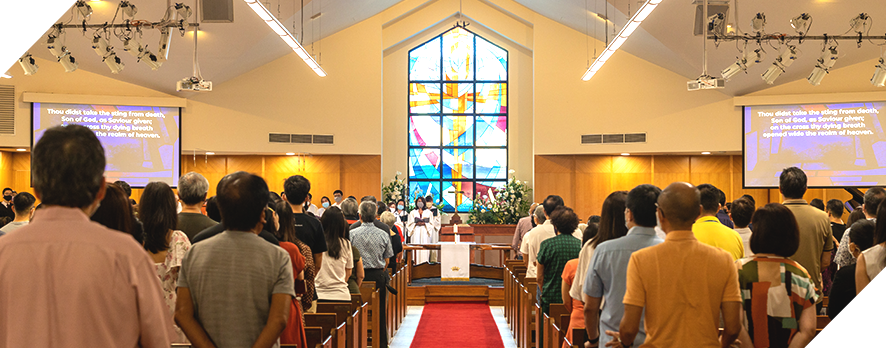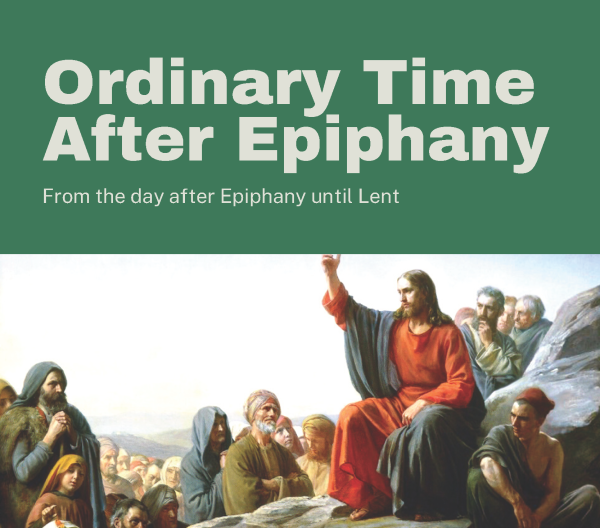
Event Calendar



WHAT IS IT?
Ordinary Time refers to the time between the two cycles of Advent-Christmas-Epiphany and Lent-Easter-Pentecost. They are marked as “After Epiphany” and “After Pentecost” respectively.
WHY DO WE CELEBRATE IT?
Ordinary Time itself has no central theme, but Scripture readings during After Epiphany emphasise the growth of the Kingdom of God through the life and ministry of Jesus – an extension to the Epiphany theme of “revealing” Jesus to the world.
NOTHING ORDINARY ABOUT ORDINARY TIME
“Ordinary” comes from the word “ordinal”, referring to how the weeks are counted in order (e.g., 1st Sunday After Epiphany, 2nd Sunday After Epiphany, and so on).
WHAT DO WE DO?
The season is punctuated by special holy days (the source of the word “holiday”) such as Transfiguration Sunday. Other days significant to the congregation, such as ACS Sunday, are also observed.
Green is used to signify growth and life.
Sermons tend to focus on Jesus’ call for us to follow him as disciples.
BOOKENDING THE ORDINARY
Both blocks of ordinary time keep our focus on the life and ministry of Jesus. The early weeks of After Epiphany continue the trajectory of the three strands of the Epiphany of Jesus, in particular his baptism, and the wedding at Cana. The first Sunday of After Epiphany is thus observed as “The Sunday of the Baptism of our Lord”. The last Sunday of After Epiphany is observed as “Transfiguration Sunday”, the final great revelation of Jesus to the world.
REFERENCES
Senn, Frank C. Introduction to Christian Liturgy. Minneapolis, MN: Fortress Press, 2012.
United Methodist Church. The United Methodist Book of Worship. Nashville, TN: The United Methodist Publishing House, 1992.